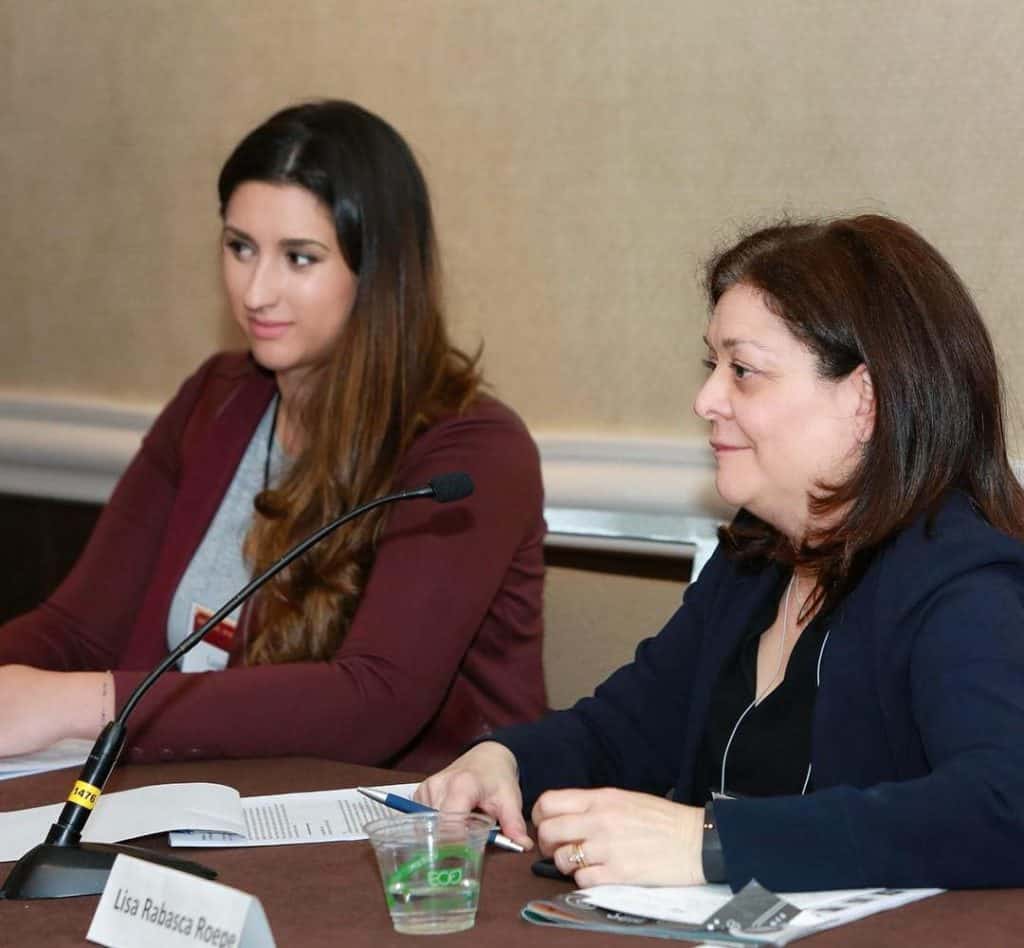Whether it is helping an author develop their voice, editing a manuscript, or turning a writer into a published author, it’s safe to say that Lauren Taylor Shute has done it all. I have been fortunate enough to know Lauren for about five years and have followed her journey from a fresh-out-of-college junior editor at a large publishing house in New York to a meticulous and tech-savvy businesswoman leading her own editorial firm. If I’ve learned anything from her, it’s that success derives directly from passion, and hers is infectious.
I met up with Lauren over some Lagunitas and crawfish at Sugar Freak, a restaurant near her apartment in Astoria, to discuss her work and what inspired her to take the leap and start her own business.
First off, what started you down this journey? Leaving a steady paycheck for the unknown isn’t for everyone. When was the moment you realized that starting your own business was something that you needed to do?
I realized early on that I wasn’t really the corporate type. I had more of an entrepreneurial spirit and wanted the opportunity to develop deeper connections with writers, to be more of the creative process at the beginning of their book’s life rather than only coming in at the end for the final product. Once I found that there was a viable market of writers who needed help building their books, I took the leap!
When I started LTSE it was in search of excitement, independence, and the ability to do the parts of the job that I love daily. Surprisingly, with all the transition in the publishing business, I’ve found running my own business to be more stable! I also love the ability to control my own destiny.

Unlike a lot of product-based businesses, most service-based businesses start out by bootstrapping (operating without taking outside funding or capital). Was it difficult to start this journey knowing that (at least in the beginning) everything was going to come down to yourself?
Sure it was scary, but I knew if I didn’t at least try, I’d probably regret it. I decided to keep my overhead as low as possible for as long as possible, and to pull in as many resources and advisors as I could handle to help me learn how to run a business on the job. I made sure I had a lucrative side-hustle to keep things moving in case I had a lapse between projects (thank goodness, that never happened), and I used my credit card as a pseudo-loan if I needed more capital than I was bringing in. I really had so little free time since I had to do virtually everything myself, but the long hours were worth it once I started to build my name and my client base.
Things started to change once I started to get more clients than I could handle. I started to figure out which parts of the projects I actually wanted to do myself, and which parts I could hire out. This in turn freed up time and allowed me to take a step back from client work and really start to learn about what it means to run a business. I started to improve my operational and financial literacy, and reach out to you for assistance on some of the financial matters that I didn’t really understand. Bringing on other people also let me work with a more diverse range of clients; while I can absolutely help a writer plan and market their, let’s say, how-to book on meditation, I’d rather bring in an editor with specific knowledge in how to meticulously edit how-to books to do that nitty-gritty work. So now I can take on more time-intensive projects I previously had to decline, and I get to work with more wonderful writers!
All of this has really helped me understand that while I love editing books, I also love running a business and how it pushes you to be better every single day.

One of the fun things I find about running a business is the ability to change and adapt regularly — to improve. When you first began your business, I believe you started out only editing books, but you’ve since expanded your services. How did you decide to press forward with these other SKUs and what have you learned from the process?
When I first started LTSE, I knew that people needed to have their books edited, and that I could do that for them. What I learned as time went on, though, is that there are many other things that they need, and that I was well-equipped to offer those services. I remember one time I was on the phone with a potential client, and we were discussing her manuscript. She mentioned in passing that she was struggling to build her platform, which is fairly essential for getting published today. I realized in that moment that the work I’d been doing to market my business could easily translate into the marketing she needed to do for herself as a writer. I suggested I help her with her platform, wrote up a basic service and added it to her quote, and boom, Platform Prep was born. Now it’s something I automatically include in many of my packages since I know how integral it is to selling books. The most important thing I learned from that situation was to pay attention to clients’ pain points; when they’re complaining about something in their lives, they’re giving you an opportunity to help them with that problem.
Our packages also got to be more detailed and refined as each new client came along. As I ran the data on the different clients and engagements I had, I was really able to streamline my processes. I always close out my projects and compare the actual timelines with my estimated timelines, and revise future projects as a result. For example, if I’m working on a book proposal with a client, I know we’re going to be working together for three to six months. What I’ve recently learned, though, is that no one can do intense creative work for that many weeks straight; we’d both get burnt out halfway through the process, and find ourselves pushing each other to keep going. Because of this, I now structure breaks throughout the project to allow both myself and the writer to take a step back and recharge. This has been huge and allows that excitement to continue throughout the whole process.
I’m constantly evolving and working to improve what we offer, and I think that’s key to building a successful company.

When we first started working together (I assisted Lauren with the initial set up of her financials and provided on-going support when needed), I was surprised how tech-savvy you were and you really pushed me to pay a lot more attention to the applications and software that are out there to simplify business operations. Can you speak to any of the products that you currently use and how they have helped to simplify your day-to-day operation?
Absolutely! As a small business, I am 100% indebted to technology for helping me streamline what I do and minimize the amount of staff I have to bring on. One of the first things I realized when I started this business was that if I wanted to scale — and scale relatively quickly — I really need to simplify my operation and automate as many processes as possible through different apps. Some of the ones I use regularly are:
Harvest — Time tracking software.
I’ve been using Harvest since Day One to clock how much time goes into each project. This allows me to make sure my estimates are correct, and adjust accordingly.
Asana — Project and task management software.
I recently upgraded my account to Premium and let me tell you, it is worth every penny. I’m able to manage every step of a project, assign tasks to staff and subcontractors, view all of my projects on timelines and calendars to see when we have openings for new projects, and use templates to replicate project tasks when new ones come in. Nothing falls through the cracks with Asana, I’m in love.
17hats — Client intake software.
I was really looking for an application that would help me organize and structure my contracts and lead engagements with my clients. I found 17hats to be super helpful with this, and loved that their lead capture forms could be integrated directly into my website. Plus I can combine a client’s quote, contract, and invoice into one webpage, it’s incredible!
FaceTime/Skype/Google Hangouts/Slack — Company-wide Communication
My staff is remote, so we do everything by video chat. These applications allow me to keep in touch with my staff and for us to have meeting that are as — if not more — productive than they would be in person. Slack lets us chat when we’re not on a call (and saves us from texting each other’s personal phones), and Google Hangouts lets us share screens which is a godsend.
10to8 — Online Scheduler
This has been one of the biggest time saves ever. Instead of going back and forth to schedule meetings with clients, I simply send them a link to my online scheduler and they schedule a time that works for them. It integrates with my website, syncs with my Google calendar (so it knows when I’m available), and it’s free!
MailChimp — Online Marketing
Their platform helps me put together my newsletter and I use it for analytics and stats on conversion as well. They’ve recently added landing pages and other marketing services, but I haven’t had a chance to test them out yet.

How have you marketed your services so far?
Most of my clients come from me the old fashioned way: word of mouth. Usually I meet them at writing events or conferences where I speak, we work together, and then they refer me to their colleagues. Then those people refer me to their friends, and it just expands from there. I do use social media to reach potential clients as well (and I’ve gotten quite a few wonderful clients who found me on Instagram in particular), but I’d say the majority of my clients have interacted with me in some way.
Of course, it’s not enough to just get exposure. People want to get to know you before they work with you (especially when it’s something as precious as a book they’ve worked on for many years). My newsletter works perfectly for this; I send out bi-monthly newsletters with writing advice, publishing news, upcoming conferences, and book recommendations. It’s a good way to give writers what they need to know in order to be successful, and it keeps me at the front of their minds. That, paired with social media, helps solidify the relationships I start when I meet people through my initial speaking engagements.
To me, it seems like a lot of the skills that you have acquired could be used to start all types of businesses. Do you have any specific advice to anyone who is looking to start their own business in a similar fashion as you?
The elements I learned were intended for many different kinds of businesses, so they can absolutely be used by others, so long as they fit the market. I’d say the most important thing to do if you’re looking to start or expand your business is to get to know your clients through and through. Name your ideal client and build their profile, spend time with your clients on the phone, give them surveys and client satisfaction questionnaires, give them an opportunity to speak their minds. The more you know about the clients you’re trying to serve, the better you’ll be able to offer them what they want.
I’m lucky in that I am a writer myself, so I know what it feels like to put yourself on the page. It’s scary, filled with self-doubt, and wonderful all at the same time. Knowing what that feels like allowed me to create a business that feels welcoming, inspiring, and energizing, all qualities that I know eases the fear surrounding getting yourself published. Those emotions translated into everything I produce, from the images I use on my website to my color scheme, my newsletters, and the way in which I write my quotes and web copy. It changed everything about how I approach my clients, and it’s been very successful. So spend the time to know where your clients are emotionally when they’re seeking a business like yours, as it’ll guide everything you do.
If you’re a writer looking for editorial assistance, book coaching, or guidance on how to get your manuscript published, you can reach Lauren at her company’s website, on Instagram, or sign up for her monthly newsletter.
Lanyap Financial is a tech-based accounting and financial services firm that specializes in streamlining their clients’ financial operations through FinTech software and cloud-based applications.





